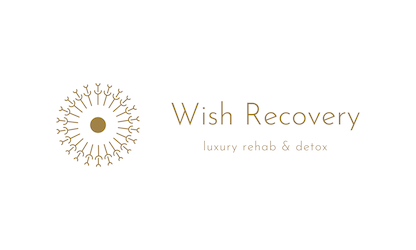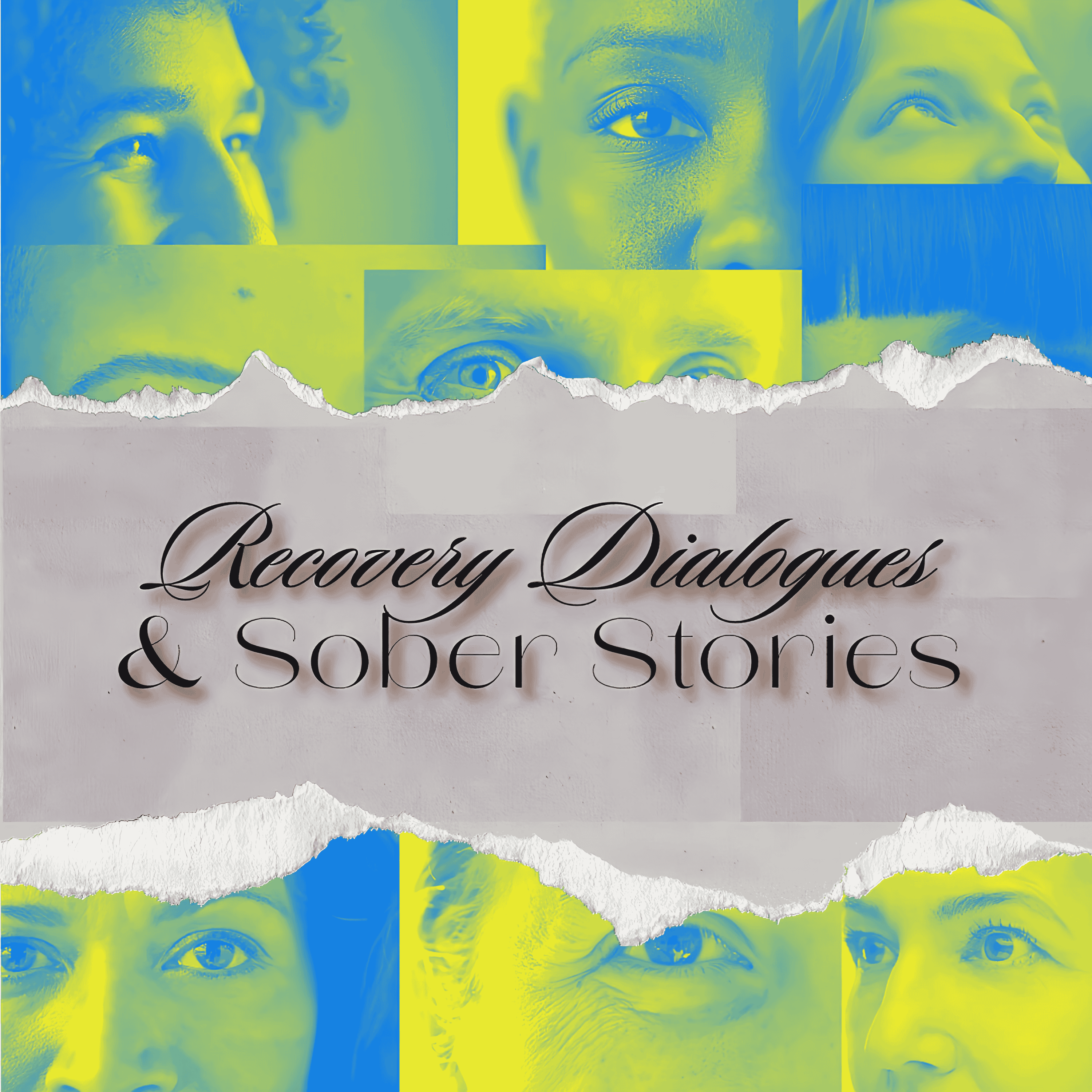

Relapse & Regret: Addressing the need for self-forgiveness & resilience
Recovery Dialogues & Sober Stories
| Antonio Matta, David Deyhimy, Evelyn Higgins, Heather Lowe | Rating 5 (1) (0) |
| contentdonewrite.org | Launched: Jun 02, 2023 |
| antonio@contentdonewrite.org | Season: 1 Episode: 4 |
Is relapse a sign of failure or a stepping stone to growth? In this empowering episode of Recovery Dialogues and Sober Stories, we delve into the challenging emotions of relapse and regret in addiction recovery. Host Antonio welcomes three esteemed experts: addiction medicine specialist Dr. David Deyhimy, founder and WIRED4 Addiction® Dr. Evelyn Higgins, and certified addiction recovery and wellness coach Heather Lowe of Ditched the Drink. Together, they explore how self-forgiveness and resilience can transform setbacks into catalysts for personal growth. Discover practical strategies for cultivating mindfulness, building supportive networks, and embracing a compassionate approach to recovery. Whether you're on your own healing journey or supporting a loved one, this episode offers valuable insights to help you move forward with hope and confidence.
------
Attention: You can support the show with donations on our GoFundMe campaign. To elevate your support, consider sponsoring Season Three of our transformative series. Partnering with us could inspire positive change. If you know any mental health professionals, addiction experts, or recovery organizations interested in sponsorship, please reach out! Email Antonio Matta or contact them on LinkedIn.
Podcast hosted on PodOps
SUBSCRIBE
Episode Chapters

Is relapse a sign of failure or a stepping stone to growth? In this empowering episode of Recovery Dialogues and Sober Stories, we delve into the challenging emotions of relapse and regret in addiction recovery. Host Antonio welcomes three esteemed experts: addiction medicine specialist Dr. David Deyhimy, founder and WIRED4 Addiction® Dr. Evelyn Higgins, and certified addiction recovery and wellness coach Heather Lowe of Ditched the Drink. Together, they explore how self-forgiveness and resilience can transform setbacks into catalysts for personal growth. Discover practical strategies for cultivating mindfulness, building supportive networks, and embracing a compassionate approach to recovery. Whether you're on your own healing journey or supporting a loved one, this episode offers valuable insights to help you move forward with hope and confidence.
------
Attention: You can support the show with donations on our GoFundMe campaign. To elevate your support, consider sponsoring Season Three of our transformative series. Partnering with us could inspire positive change. If you know any mental health professionals, addiction experts, or recovery organizations interested in sponsorship, please reach out! Email Antonio Matta or contact them on LinkedIn.
Podcast hosted on PodOps
Is relapse a sign of failure or a stepping stone to growth? In this empowering episode of Recovery Dialogues and Sober Stories, we delve into the challenging emotions of relapse and regret in addiction recovery. Host Antonio welcomes three esteemed experts: addiction medicine specialist Dr. David Deyhimy, founder and WIRED4 Addiction® Dr. Evelyn Higgins, and certified addiction recovery and wellness coach Heather Lowe of Ditched the Drink. Together, they explore how self-forgiveness and resilience can transform setbacks into catalysts for personal growth. Discover practical strategies for cultivating mindfulness, building supportive networks, and embracing a compassionate approach to recovery. Whether you're on your own healing journey or supporting a loved one, this episode offers valuable insights to help you move forward with hope and confidence.
------
Attention: You can support the show with donations on our GoFundMe campaign. To elevate your support, consider sponsoring Season Three of our transformative series. Partnering with us could inspire positive change. If you know any mental health professionals, addiction experts, or recovery organizations interested in sponsorship, please reach out! Email Antonio Matta or contact them on LinkedIn.
Podcast hosted on PodOps
Relapse & Regret_ Addressing the need for self-forgiveness & resilience
RAM 4: Welcome to Recovery Dialogues and Soboer Stories, the podcast that brings you inspiring and insightful conversations about addiction and recovery. In this episode, we will explore the vital topic of relapse and regret. Recovering from an addiction is a journey that involves both progress and setbacks.
Unfortunately, relapse is a common occurrence that many people experience. It can lead to various emotional and psychological effects , such as shame, regret , and hopelessness. However, it is important to [00:01:00] understand that relapse is not a sign of failure. With the right approach, individuals can learn to forgive themselves, develop resilience, and continue on their path to recovery.
I'm excited to welcome three exceptional experts to the show this week. Firstly, we have Dr. David Deyhimy, an experienced addiction medicine specialist as the medical director of My MAT clinic, a medication assisted treatment provider, and a medical advisor for Project Opioid and health care companies such as Hikma Pharmaceuticals, Dr. Deyhimy advocates, for evidence based addiction treatments. Our second guest is Dr. Evelyn Higgins, Wired for Addiction's founder and CEO. Dr. Higgins is a certified addictionologist, a diplomate of the American Board of [00:02:00] Addictionology and Compulsive Disorders, and a diplomate of the American Board of Disability.
She is a renowned international expert and has had the privilege of advising the U. S. Surgeon General. Our last guest is Heather Lowe, a highly qualified professional with addiction recovery and wellness coaching expertise. She founded Ditched the Drink, a wellness company that helps professionals move away from alcohol and towards their best selves. Heather has helped countless people overcome their struggles with addiction and achieve their goals. I'm so honored to have these three experts join the panel to share their knowledge and insight. According to the National Institute on Drug Abuse, about 40 to 60% of people experience a relapse within the first year of recovery.
This makes relapse practically inevitable for [00:03:00] most people in recovery. Dr. Higgins, how can individuals in recovery practice self forgiveness after a relapse?
Dr. Evelyn Higgins: Self forgiveness during a relapse, the first step would be to understand that this is a disease. It's not a moral flaw. So like with any disease, there are going to be exacerbations in it.
And we've got to understand this process as we move through it. So understanding it's a disease, it's not a moral failing, and it's part of the process. Understanding that is a way to continue to move through without major setbacks.
Antonio: Ms. Lowe, what are some effective strategies for developing resilience in the face of setbacks and challenges?[00:04:00]
Heather Lowe: Myself, I always say if beating ourselves up worked, We all would have cured our addictions, right? Because we've tried that. We've tried a loud inner critic and we've tried beating ourselves into the ground and beating ourselves around the block for all the shame and all the guilt and all the disappointment and regret that we've had due to our addiction.
So those things don't work. What does work is compassion and forgiveness. And just like a baby learning to walk, you would never expect that baby to learn to walk when it took its first step. You would expect that it would fall on its bum and get back up and try again over and just keep practicing ditching the drink or Recovering from a substance also takes practice.
So keep practicing compassion, self forgiveness, kindness, and not expecting that you're going to get it on the first try, right? But it's usually not the trying that works, but the keep trying [00:05:00] that works. And for me, I had years of trying before I finally had my last day one. And now I'm happy to report that I'm over five years alcohol free.
And it took trying and trying again. to get me to this place.
Antonio: Dr. Deyhimy, how can individuals in recovery build a support system that promotes self forgiveness and resilience?
• Dr. David Deyhimy: The standard answer within the behavioral recovery community is to go to 12 step meetings and get a sponsor and participate in the meetings and become accountable.
to others and practice the 12 steps. Unfortunately there's not a lot of data to show that this really improves long term recovery rates. Anecdotally it does for some people. And there certainly is the importance of social interaction and being mentored and being around people that. are in recovery and farther along that, that, [00:06:00] that continuum than you are.
However, what has been shown to be most effective in terms of behavioral therapies towards recovery is cognitive behavioral therapy with a trained cognitive behavioral therapist. And during that process, they can work on exactly these types of questions.
Antonio: Dr. Higgins, how can mindfulness and self compassion practices be used to cultivate resilience and foster self
Dr. Evelyn Higgins: Self compassion can be such great tools to have in the individual's toolbox to use during this process. Understanding that each decision that we make, if we're employing mindfulness, we actually vet out that decision. And if we're using self compassion, giving ourselves that leeway Then all of this [00:07:00] gets us back on track if in fact a relapse does happen and we don't see it as a failure because once again we understand it's a disease.
Antonio: Ms. Lowe, what are some common emotional and psychological challenges that individuals in recovery may face after a relapse and how can they be addressed?
Heather Lowe: Many people feel defeated and a sense of hopelessness. A thought that if they haven't completely kicked their habit yet, that they're never going to.
And I think it's important to understand the neuroscience. and the leading edge brain research as taught in many coaching programs, including the International Association of Professional Recovery Coaches, because you learn exactly how a substance affects your brain and that often it's the substance doing the talking.
So there's things that you can put in place to prevent [00:08:00] a future relapse. Maybe it's just a warning that you need more support, that you need to try different. That you need to add in some more things to help you, but mostly this trust with yourself feels broken. And instead of looking at it like that.
You can look at it as what else do I need? What more support can I add in?
Antonio: Dr. Deyhimy, how can the family members and loved ones of individuals in recovery support them in their journey towards self forgiveness and resilience?
• Dr. David Deyhimy: The best way for loved ones and family members to support somebody on their journey towards recovery is for themselves to understand that, that substance use disorders or addictions to drug and alcohol cause brain changes.
And these brain changes take a while to, to normalize and that this is a chronic disease, just like any other chronic disease, [00:09:00] diabetes, high blood pressure, heart disease, and the behaviors that we see with addiction. Although those behaviors are not ones that that we like they're symptoms of a disease that's not properly treated or managed.
So number one if families understand that this is a disease process and treat the person without stigma or as if they have a moral failing. But as a person that can go a long ways to helping them in their recovery. Also parent family, loved ones, parents should also know that there are very effective treatments for certain use disorders or addictions like opioid use disorder and alcohol use disorder.
And that if your loved one is not on one of these medications and the chances of them recovering through behavioral treatment alone. is extremely low and that every relapse in the, in, when we're talking about opioid use disorder, every relapse could be, could result in an overdose and death. So these medications are extremely effective.
at not only preventing relapse [00:10:00] but preventing death as a result of relapse. And then finally family members should carry naloxone and have it in their house and talk about it openly because that's the one drug that can save somebody's life if they're having a relapse. And to not have it and to stand there helplessly as somebody is overdosing while you wait for the paramedics or EMS to arrive is a terrible feeling.
But the ability to act quickly and to save somebody's life is very powerful. And what we always tell family is that, relapses happen, but death is permanent. And so we always want to avoid having somebody overdose and die. And it's our responsibility to carry the effective reversal agent naloxone or intranasal naloxone like Clixoto or Narcan.
These medications are effective in reversing an opioid overdose, and nowadays with [00:11:00] synthetic opioids like fentanyl, you need a stronger drug like Clixoto in order to reliably reverse an overdose. I dispense this drug to families as well as our patients. and encourage them to carry it and have it in their homes at all time.
Antonio: Dr. Higgins, how can individuals in recovery use their experience with relapse and regret as a catalyst for growth and transformation?
Dr. Evelyn Higgins: Their relapse and regret as a catalyst for growth and transformation by understanding that they got Past it that they hit that point and still were able to go on, it's just like in life in the big picture when you meet somebody that has so much character, you know that there are stories behind that they weren't born that way.
It was what they had to deal with in life. With the [00:12:00] relapse of life, with the regret of life, to make that their catapult for growth and transformation. And when you find yourself in the trenches and you climb out, you know it is possible within you to do it again.
Antonio: Ms. Lowe, what are some common misconceptions about relapse and regret, and how can they be addressed in the recovery community?
Heather Lowe: If you look at relapse as a learning experience, everything is moving and shifting. If you went through periods of time drinking and then you had a drink, it doesn't mean not drinking is for you or you're out of recovery or you won't be able to do it. It just means you need more support. It just means you're still learning.
So I just, I think this idea that we have to walk a tightrope of perfection. in recovery, especially when we're just starting out, it's hard. For [00:13:00] me, I had three years of on off drinking, never with the intention of quitting for good. I didn't want total abstinence to start. So I would go through periods of drinking and periods of not drinking.
I was trying to moderate and I was trying to not have a problem. I was trying to be a normal drinker. I was trying, everything I could. To figure out the special formula for having the right amount of drinks without giving it up completely and without having too much. That elusive number, I never was able to find.
And ultimately, I decided that none is the best amount for me. But in the beginning, it was practicing and it was trying both ways. And I think that's true for a lot of people. It's definitely true for my clients as a certified professional recovery coach through the International Association of Professional Recovery Coaches.
I think it's very common that in the beginning or early sobriety, our clients have periods of time when they're drinking and the periods of time when [00:14:00] they're not drinking. before ultimately they decide to ditch it for good.
Antonio: Lastly, Dr. Deyhimy, how can individuals in recovery build a sense of purpose and meaning in their lives after a relapse, and how can this contribute to their overall well being and resilience?
• Dr. David Deyhimy: The best answer I can come up with that comes directly from our MAT clinic in that patients that have relapsed numerous times have survived and eventually got put onto effective medications that can control their cravings and withdrawal. are the best advertisement or mouthpieces for those who aren't on those medicines.
And so the overwhelming majority of patients that come to our clinic asking for help have been referred by a friend of theirs who was in exactly their position, months or years ago and [00:15:00] said, Hey. These medicines changed my life. You've got to be on these medications if you want to really make sustained forward progress.
And here's the number of the clinic and these people were, they're not going to judge you when you go there. They're just happy that you came. And they just want to prevent you from having a possible overdose and continuing to relapse and they want to see you do better in life. So I think people that have themselves gone into remission, no matter how they've done it, but especially I'm biased towards medications because they work the best.
are the best people to advocate for these treatments for others that are currently struggling and don't know which way to turn.
Antonio: Thank you to our panel guests for their time, expertise, and insights. As we end this episode of Recovery Dialogues and [00:16:00] Soul Stories, I hope you feel empowered by the wisdom shared by our three experts.
Returning to substance use after abstaining may seem like a defeat at first glance, But that's only if we look at it through a narrow lens. Relapse is simply a response to triggers, whether they come from within or without. It's an opportunity to practice self forgiveness and resilience and to learn from our mistakes.
We can use setbacks like these to grow and strengthen our recovery journey by embracing new responses and getting back on track. I thank our sponsor Wish Recovery for supporting this episode. Wish Recovery is a luxury dual diagnosis treatment center that provides personalized and holistic care to individuals struggling with addiction and mental health issues.[00:17:00]
If you or someone you know needs help, we encourage you to take the first step toward a healthier and happier life. Thank you for listening, and we look forward to seeing you next time on Recovery Dialogues and Sober Stories. Stories.





